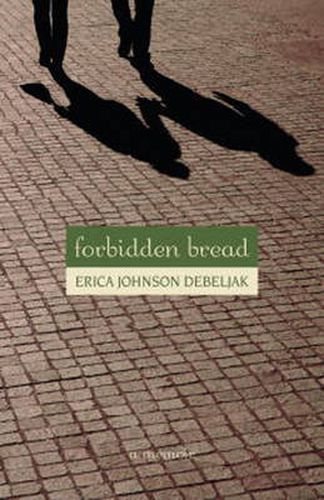Readings Newsletter
Become a Readings Member to make your shopping experience even easier.
Sign in or sign up for free!
You’re not far away from qualifying for FREE standard shipping within Australia
You’ve qualified for FREE standard shipping within Australia
The cart is loading…






Forbidden Bread is a memoir written by Erica Johnson Debeljak about her decision to turn her life upside down and move to a new country. At the core of the memoir is the unlikely love story between the author, an American financial analyst living in New York City, and, Ales, the bohemian womanizing Slovenian poet who catches her heart without really meaning to. Though Debeljak’s calling takes her far from her native country, her choices represent universal themes: family, culture, language, and what it means to belong to a specific place. The story begins in New York but soon migrates, along with its author, to Slovenia. As the author tries to forge an identity in her new home, she discovers to her dismay that Slovenia itself is struggling to decide who and what it is in a rapidly changing world. She invites the reader along as she tangles with Slovenia’s not quite defunct communist bureaucracy, with its impossibly complicated language, its politically incorrect ethnic jokes, and the material egalitarianism that coexists with old-fashioned sexism. She comes to love her husband’s family and the fast disappearing rural traditions of the beautiful little land. All of this takes place against the backdrop of the appalling Yugoslav wars of succession.
$9.00 standard shipping within Australia
FREE standard shipping within Australia for orders over $100.00
Express & International shipping calculated at checkout
Forbidden Bread is a memoir written by Erica Johnson Debeljak about her decision to turn her life upside down and move to a new country. At the core of the memoir is the unlikely love story between the author, an American financial analyst living in New York City, and, Ales, the bohemian womanizing Slovenian poet who catches her heart without really meaning to. Though Debeljak’s calling takes her far from her native country, her choices represent universal themes: family, culture, language, and what it means to belong to a specific place. The story begins in New York but soon migrates, along with its author, to Slovenia. As the author tries to forge an identity in her new home, she discovers to her dismay that Slovenia itself is struggling to decide who and what it is in a rapidly changing world. She invites the reader along as she tangles with Slovenia’s not quite defunct communist bureaucracy, with its impossibly complicated language, its politically incorrect ethnic jokes, and the material egalitarianism that coexists with old-fashioned sexism. She comes to love her husband’s family and the fast disappearing rural traditions of the beautiful little land. All of this takes place against the backdrop of the appalling Yugoslav wars of succession.